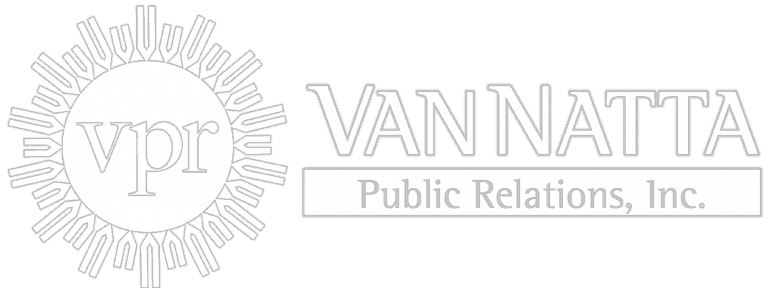Do you ever worry that someday someone will realize you don’t know what you’re doing? Are you sure you will be exposed and your clients and colleagues will discover you have been pretending all this time? You might have “Imposter Syndrome.”
Imposter Syndrome, a common issue experienced by many professionals, occurs when an individual has an inability to value their accomplishments. People suffering from this syndrome feel they don’t deserve their positions and are frauds masquerading as professionals. In many cases, the ‘imposter’ feels strongly that they are underqualified for their position and (or) don’t compare favorably to their peers. This can be a major deterrent to their success because ‘imposters’ may feel unconfident applying for new roles because they perceive themselves as inexperienced or unqualified. This flawed reasoning tends to promote a substandard self-image despite evidence indicating skill and success.
According to Valerie Young Ed.D, leading expert in Imposter Syndrome, there are various forms of the syndrome based on factors such as background, character and environment. Her research defined five categories:
The Superhero
Superhero ‘imposters’ are convinced they don’t compare favorably to their colleagues and are undeserving of their occupation. These types are inclined to work extremely hard to show they can complete the work required of them. ‘Superheroes’ have a desire for validation that can lead to an unhealthy workload. This may affect the ‘imposters’ health and energy which will sap their productivity and make them actually look bad.
‘Superheroes’ crave validation and acknowledgment for their substantial workloads. This creates an unhealthy focus on the act of working, rather than the physical product produced. To alleviate this issue, thank them for their work but encourage time off and relaxation. These types need to understand that they are more productive when their work/life balance is healthy.
The Expert
Another kind of ‘imposter,’ ‘expert imposters’ usually feel they have duped their employer into hiring them due to their assumed expertise in a certain subject. Typically, these ‘imposters’ are afraid of being exposed as frauds. Due to this doubt, ‘experts’ are constantly trying to find new ways to learn and expand their knowledge. The issue is that they often become obsessed with self-edification to the point that their productivity is seriously diminished. They tend to waste their time trying to grow in knowledge, rather than focusing on other work priorities.
‘Expert imposters’ need to understand that while a good knowledge base is important, it is not catastrophic if they don’t know everything. These types need to be encouraged to learn new things and grow in other facets. If possible, put less pressure on them to be an expert in something. Allow this kind of ‘imposter’ to branch out and try new things.
The Perfectionist
This ‘imposter’ type spends an exorbitant amount of time making sure their work is absolutely flawless. The issue is that ‘perfectionists’ waste time and reduce their productivity by being too detail-oriented. They tend to set excessively high standards in their goals. If they fail, the will feel like they are an ‘imposter’ and unworthy of the job. If they succeed, they will feel they didn’t set the bar high enough and are still an ‘imposter.’ For ‘perfectionists,’ success is rarely satisfying because they believe they could have done better.
‘Perfectionist imposters’ need to understand that mistakes are a normal part of learning and are unavoidable. They need to celebrate their achievements in order to find contentment and improve their confidence. This imposter type needs to be strongly encouraged not to spend too much time making sure something is perfect.
The Individualist
The ‘individualist imposter,’ possibly the most insecure type of all, is prone to avoid help in any form. To them, asking for aid can be a sign of failure and will reveal that they are phonies. Independence is an admirable trait, but not when it is taken to the extreme. Individualists tend to spurn any advice or offer for help as an insult and tend to isolate themselves. These ‘imposters’ have a deep-seated self-doubt which they feel a constant pressure to disprove in order to validate themselves and substantiate their worth.
Put simply, ‘individualists’ need to understand how to recognize their own competence. It needs to be clear that asking for help is not a sign of weakness; it’s a desire to succeed and be a part of a team. In fact, a great way to motivate them to ask for help is to make it clear that successful people usually enlist the aid of others. Keep in mind that consistent, positive reinforcement is key to managing all imposter types, not only the ‘individualists imposters.’
The Genius
‘Genius imposters,’ like ‘perfectionist imposters,’ have unrealistic expectations for themselves. Geniuses believe they are frauds when their natural ability fails to accomplish something. In other words, if they aren’t ideally equipped for a task, they feel like an imposter. In many cases, they expect to get things right on the first try and often worry when they have to work hard at things. This can sabotage the quality of their work.
Geniuses need to understand that no one is great at everything. If they want to be good at something, they have to put in the time and effort to master it. Everyone has flaws and they don’t need to be embarrassed when they can’t do something on their first try. However, they still need to be encouraged to try new things; especially ones they are uncomfortable with. Focus on improving the small things – this will help with a genius’ confidence and should empower them to conquer larger scale projects.
Mary Louise VanNatta, APR, CAE is the CEO of VanNatta Public Relations a PR, Event Planning and Strategic Communications firm located in Salem, Oregon. PRSalem.com, @PRSalem.



